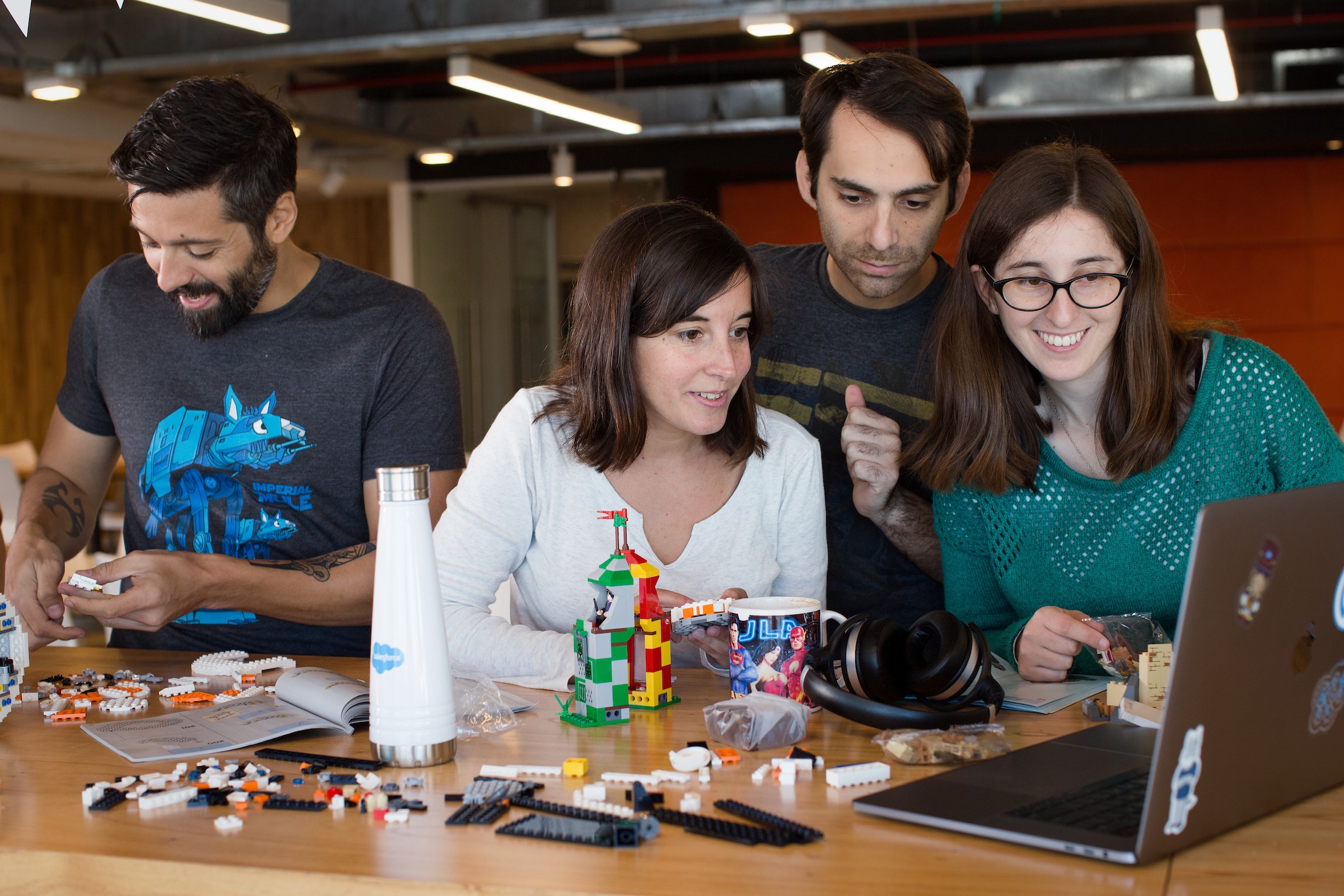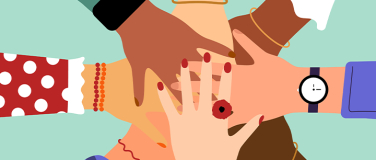This blog was originally published on Medium.
Ana’s hobbies range from participating in any sport she can find and bingeing on Netflix to playing old video games, learning about history, and playing the guitar. “I love to learn about everything,” says Ana Felisatti, a Buenos Aires-based Manager of Software Engineering at MuleSoft. “There are so many things that bring me joy!”
Ana was recently named a 2020 winner of Salesforce’s internal Innovation Challenge — the result of three patent filings representing innovations in software patching, pull request validations, and performance testing — and will get to (virtually) attend this year’s Grace Hopper Celebration.
Here, she shares her excitement about the upcoming event, and her determination to make STEM opportunities accessible for girls and women through coding programs and mentorship.

I was working at MuleSoft when it was acquired by Salesforce. A lot of my colleagues were nervous about what would happen. But not me. I was so excited! I knew I was about to become part of something amazing. I was already aware of Salesforce’s culture and I’d been blown away by a talk I’d seen Marc Benioff give at the Grace Hopper Celebration in 2016.
A global company where equality and diversity are the priority, and I get to learn from some of the best developers in the world? That’s a company I want to work for.
I love designing elegant solutions, creating clean code, testing it, and then seeing it applied. It’s creative, demanding, and endlessly satisfying. Together with developers, my team at MuleSoft works to bring more value and efficiency to our customers in settings where technology can have a great impact on humanity. For example, we can deliver features for applications used by hospital staff to ensure patients are getting fast and accurate care.
I’ve been involved in creating and standardizing security configurations for applications. It is incredibly challenging work. But as the need for data security increases, we must come up with innovative ways to secure the applications our customers use. They have to trust the integrity of their applications and know their data is safe. I get to be part of building that trust and ensuring that integrity.
Challenges, recognition, and celebration
I am thrilled and honored to have just been awarded the 2020 Innovation Challenge for three new patents I worked on. Each patent represented an innovation in its area, and I am particularly proud of the performance patent as it has the potential to improve our testing radically and was the result of cross-team collaboration.
I’m also so encouraged by the process — I filed these patents because Eva Martinez Ruiz Moreno, Director of Software Engineering here at Salesforce, suggested I should patent a tool I’d created. Getting that kind of support, recognition, and encouragement from leaders in the organization I work for is amazing.

Being recognized with this award is important to me, but I’m actually most excited about the prize of virtually attending the Grace Hopper Celebration. I’ve been a few times now and always come away with so much knowledge and inspiration — not just about new technologies, but from seeing how other women have navigated and succeeded in their careers.
Whether it’s been a quick chat over lunch or between panels, or in the presentations themselves, the advice I’ve been given from women in tech at the Grace Hopper Celebration has always stuck with me. Seeing the value of events like that — those ‘see it, be it’ moments — has also inspired me to want to play a role in helping get more girls and women into STEM.
Representation matters: We have to see it to be it
I know what it’s like to be the only girl in the classroom. I want girls coming through school and university today and into the future to be in classrooms and labs full of other girls and women. But we can’t be what we can’t see, so in addition to supporting girls and women to build skills, we need to show them that STEM careers are for them.
That’s why I was so pleased when I learned about the Trailblazing Women Summit at Salesforce. I heard firsthand from leaders in various industries talk about the urgent need for increasing representation of women in tech.

One of the most satisfying projects I’ve been involved in was a ‘hackathon’ where girls 13 to 18 years old were taught how to build phone applications with a cool MIT technology called App Inventor. The group that put the event together — Chicas en Tecnología — was working toward NGO (non-governmental organization) status but needed some support.
We went to our VP of Engineering and asked if Salesforce could support the event. He was on board immediately — it was a terrific success and our sponsorship will help the program continue for three years and grow to other locations around the country.
I got to mentor some of the girls and was so moved by the work they were doing. On their own initiative, they built applications to alert neighborhoods to potential flooding and to make it easier to contact emergency services and domestic violence services. We showed them the technology and asked them what kinds of problems they’d like to solve, and they just went for it. The technology was completely new to them but the way they used it was very inspiring.
I learned recently one of the girls I mentored on that initiative has changed her studies to focus on a career in programming because of that experience. Hearing that was like receiving another amazing award. To help someone recognize their potential and show them what’s possible is so rewarding.

I’m able to be successful in my career path partly because of the other women leaders in technology who’ve offered advice and encouragement along the way. I had to see it to be it, and now I have a chance to ‘be it’ for the next generation of girls too. I’m excited to see their futures!
Ready to take the next step in your career? Find out more about working at Salesforce.









